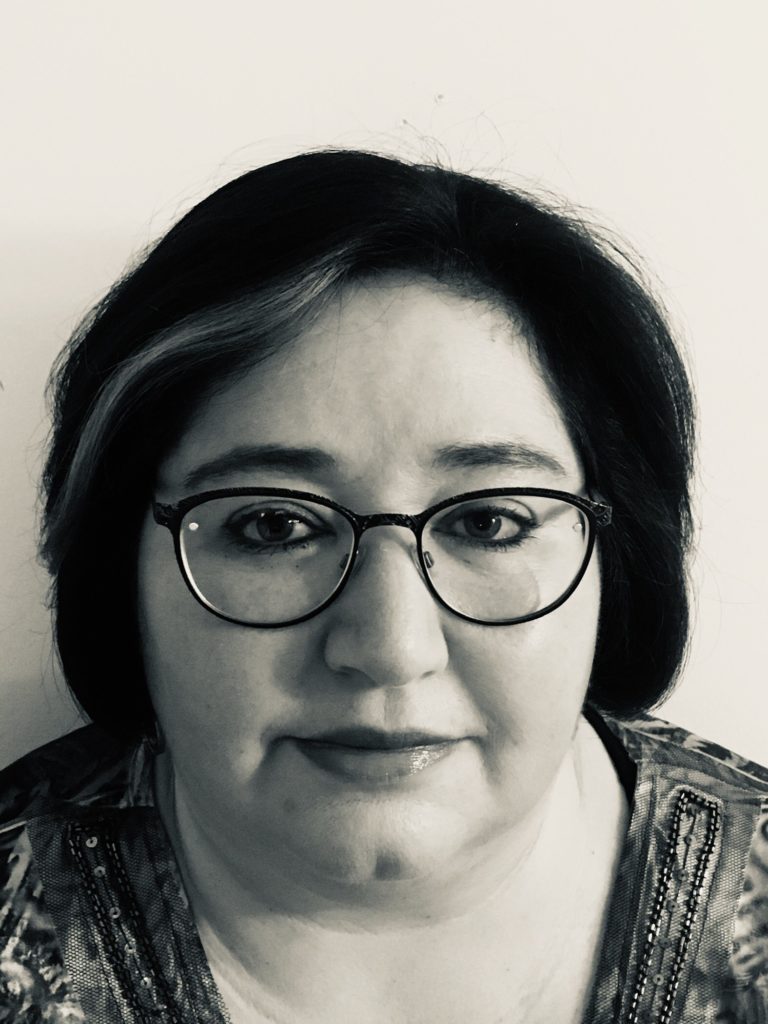Projects are Life: Sarah Stevens, Centerline Communications
Sarah Stevens is an Associate Project Manager at Centerline Communications, where she brings over 20 years of experience in telecommunications, new site development, real estate, zoning, and construction to the job every day. Sarah’s piece of advice to new project managers is, “you need to be willing to broaden your horizons.” After learning about her journey from architecture, commercial zoning, and construction, to telecommunications with Verizon Wireless and finally Centerline, it is clear that Sarah has taken her own advice throughout her career and in her personal life.
Sarah, tell me: what your role is at Centerline Communications?
My title is Associate Project Manager. I work jointly with a project manager on an AT&T new site build program in upstate New York. The project manager and I split the PM role. I do a lot of direct contact with our site acquisition reps to address questions, concerns, and processes with respect to leasing, site development, and zoning design. The PM does a lot of the tracking, reporting, budgeting, and billing, and it works out perfectly. He plays to his strengths, and I play to mine – I have 20 plus years experience in telecommunications, new site development, real estate, zoning, and construction. We gel together and support each other really well, and it’s been a great fit. I’ve been doing this at Centerline for just under a year. May marks my first anniversary with Centerline. I came here after 20 plus years with Verizon Wireless doing basically the same type of work for the client, but now I’m the vendor.
I’d love to hear more about how your career led you to Centerline?
I went to school and got my degree in architecture. While I was in school, I realized that as much as I loved architecture, I didn’t want to sit at a computer and draft wall and window sections all day long. I also had an interest in zoning land use, because my father was a land use attorney, and I grew up going to zoning meetings with him. After college, I landed my first real job, where I worked for a small company, a vendor doing development work for some chain restaurants and convenience stores. I got more experience and then got a job for an automotive repair company where I was a construction manager handling zoning and construction.
I can definitely see how those experiences would set you up for success in telecom.
Definitely. I’ve worked hard, and I’ve made smart decisions – I don’t think it’s all luck. I think I’ve been very fortunate that everything I’ve done has really worked together to build my experience and my resume. When I thought about what I was going to do when I left Verizon, I tried to decide what I wanted to go for next. I have a pretty broad resume, but it’s not that I could pick one aspect of it and just pick up at this level. I couldn’t work for an engineering firm. I don’t have a license and couldn’t start work for them anywhere above entry-level. I couldn’t work for a law firm and get billable hours at the level that I work now. Picked apart, I could not make a career out of those paths, but, when combined together, all of my experience put me in a great spot when it comes to project management for real estate development, and particularly for telecom.
You have so much experience in a variety of roles. What advice would you give to new project managers?
You need to be willing to broaden your horizons.
I think, as an employee of any company, you need to be willing to broaden your horizons. You need to take every opportunity you can to learn new things and to gain more experience. It makes things much more fun. Plus, the more you know and the more you’re willing to do, the more you are seen as the one who can jump in, do what needs to be done, and do it well. In situations like these when times aren’t good, the more valuable you are, the less likely you’re going to be the first one out the door.
“What you’re saying is you’ve got to put yourself out there!”
I had a great run with Verizon. I loved what I did. I was willing to step up above the radar and I got some big projects; I took on tough jobs; I am happy with that. My work on Sitetracker right now is something I’ve picked up in addition to my job and I believe I can excel at it. It gives me something fun to work on, and I’m happy to make the best out of Sitetracker because I want my company to make the most use out of the tool.
You work in Sitetracker all the time. What is the biggest benefit of using Sitetracker for telecom project management?
Real-time data is the biggest benefit of using Sitetracker for telecom project management.
We don’t have to enter data two and three times into different places. We need to see the data, and we need to be able to ask the questions about the data, such as, what are the issues? What are the hurdles? What do we need to do to move forward? What’s the task we’re waiting on? I want to be able to look in one place and see what projects and milestones are done. To me, real-time, accurate data has always been what Sitetracker does best.
In terms of real-time data, how important is having accurate data at your fingertips in your team’s success?
It is important because as a vendor, when our clients want data and details, they don’t want it tomorrow, they want it now. To have all the details and data in one place, in the same format is really helpful because we are able to deliver accurate information to our clients, quickly.
Accurate data is the stuff that Sitetracker really does well. And on top of that, the reason it really does well for us is that it was one of the first project management software that was really geared towards the telecom industry. There really wasn’t anything out there that dealt with telecom development and telecom management, and the industry knowledge makes a huge difference.
Let’s say you’re whipping up the recipe for the perfect project. Mix real-time data with what to run a great project?
Thoughtfulness. Everybody has to find their own way to run a project, but you have to do things thoughtfully. It’s better to take a few extra minutes and think about something than to rush it. It’s better not to take notes and to listen than it is to be furiously taking notes and miss the point. I think the more you do that, the more you listen, take time, and are thoughtful about how you do things, the better you can manage a project. I think you just have to think things through.
You’ve been in the industry for 20+ years. What’s your favorite thing about project management that keeps you excited?
My favorite things are the deviations. I love solving a problem. I love finding a way to avoid a problem. When I interviewed for this position, one of the things I told my boss was my philosophy with these projects is to do everything I can, not necessarily to avoid the hurdles but to avoid the hurdles being created in the first place. So anticipating those deviations and finding a way to avoid them, to not create them, is fun to me.
What do you do in your spare time?
Right now, not a whole lot of anything fun, but when we’re not socially distancing from everybody, I run a very small little side gig. My side hustle is called Froggy Bottom Artists and Events. My husband ran a small sound and lighting company for live music. We’d go to bars and festivals and things like that and do the sound and lighting engineering for bands. When he decided to get out of that last year, I still wanted to sort of stay involved. One of the hardest parts of being a musician is getting gigs and chasing down venues. With my experience and what I do for a living, I tend to be at least reasonably capable of talking to a venue and not scaring them off or being too pushy. I have a decent way of communicating. The intent is to be able to book gigs for these bands that I call friends. I had just started getting Froggy Bottom Artists & Events into a groove before everything shut down, and I am really looking forward to it starting back up soon!
About Sitetracker:
Sitetracker, Inc. powers the successful deployment of critical infrastructure. As the global standard for managing high-volume projects, the Sitetracker Platform enables growth-focused innovators to optimize the entire asset lifecycle. From the field to the C-suite, Sitetracker enables stakeholders to optimize how they plan, deploy, maintain, and grow their capital asset portfolios. Market leaders in the telecommunications, utility, smart cities, and energy industries — such as Verizon, Ericsson, Fortis, Alphabet, British Telecom, and Vodafone — rely on Sitetracker to manage millions of sites and projects representing over $23 billion of portfolio holdings globally. For more information, visit www.sitetracker.com
About Centerline Communications:
Founded by Joshua Delman in 2006, Centerline Communications is a turnkey professional services organization that specializes in the development, operations and maintenance of telecommunications networks and commercial facilities. The company offers nationwide services and is separated into three divisions: Wireless Services, Technical Infrastructure Solutions and Facilities Management. Learn more at https://centerlinecommunications.com/


